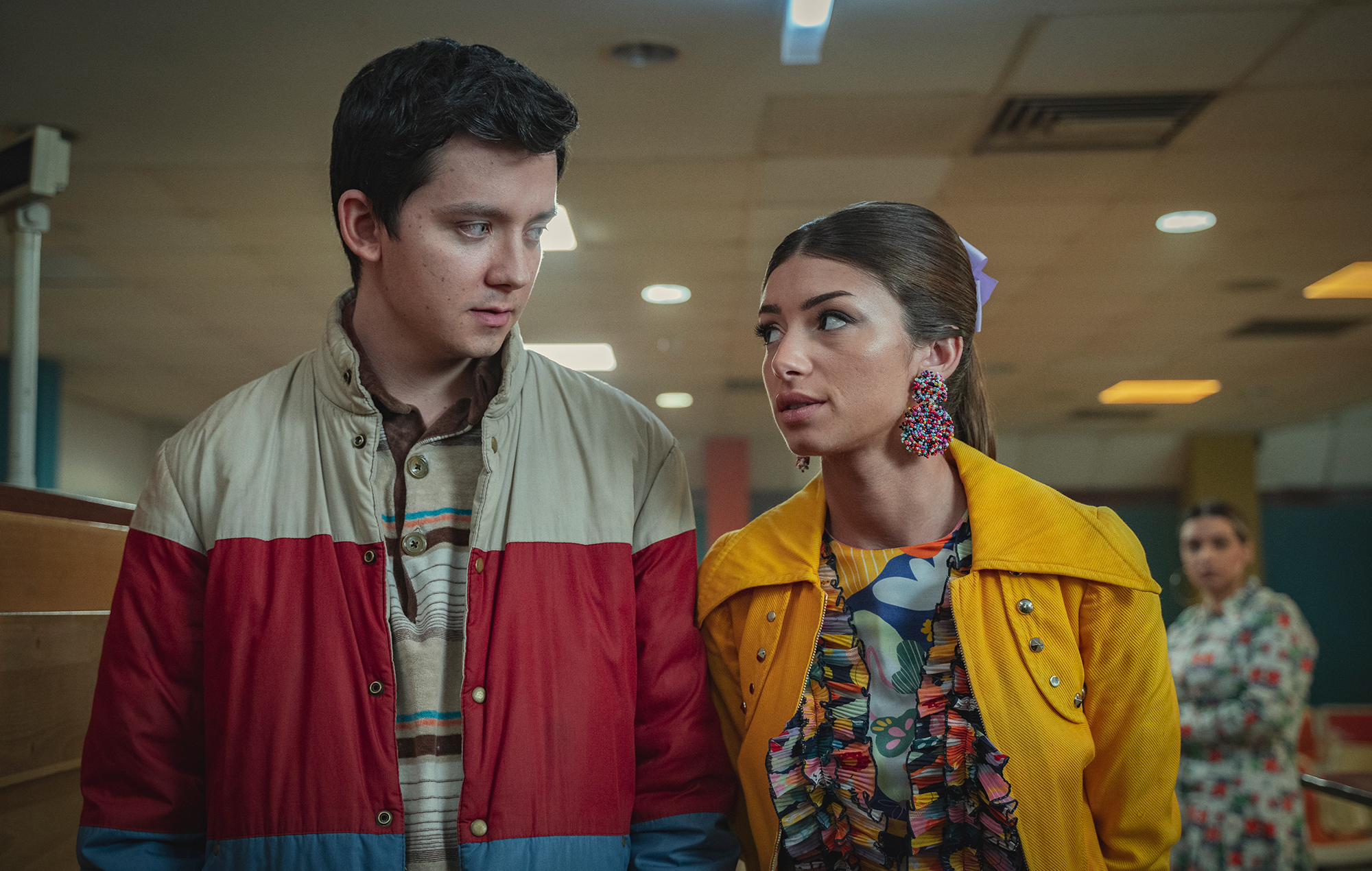
Celebrity news, beauty, fashion advice, and fascinating features, delivered straight to your inbox!
You are now subscribed
Your newsletter sign-up was successful
Warning: contains Season 3 spoilers.
If you haven't seen Sex Education Season 3 yet, quick question: where have you been?
Dropping on Netflix on 17th September, the hit show - which follows the lives of Otis, Maeve, Eric, Adam and other students at Moordale High - teaches several important messages about sex, consent, gender, sexuality and relationships.
Traditional TV narrative often sees sex portrayed in a porn-esque and frankly unrealistic manner: no-one looks like that while doing that. Sex Education, on the other hand, paints a refreshingly honest and realistic picture.
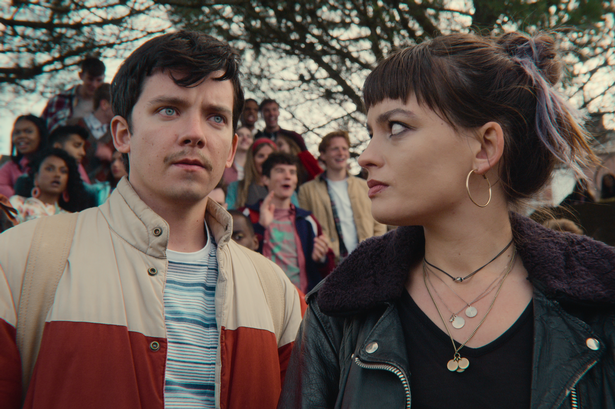
*Spoilers below*
Relationships are raw, gritty, often challenging and always complicated, in their own ways, and Sex Education shows just that - with core couples breaking up, despite you wanting them to stay together (we're looking at you, Eric and Adam); main characters prioritising their career trajectory over love, (enjoy America, Maeve); and even the adult characters love lives highlighting that no relationship ever comes without hurdles (please for the love of god, let the baby be Jean and Jakob's).
More frank and educational relationship and sex ed content like this isn't just preferred, but essential: it'd do a nation of UK teens (and adults) the world of good, and continue to teach them that sex can be safe, fun and pregnancy-free, too. It's 2021, after all, and archaic and outdated teaching when it comes to sex and relationships should be a thing of the past.
Keep reading for our favourite learnings from the show.
Celebrity news, beauty, fashion advice, and fascinating features, delivered straight to your inbox!
https://youtu.be/85KjipQA6Kk
Sex Education season 3: 10 important learnings
1. Communication is key
An overarching theme of the season? That communication is key and, more often than not, harder to get right than you'd think.
"Each episode runs through a challenge or emotional hurdle and shows a difficult or awkward discussion point between sexual partners, which we can all relate to," explains Ness Cooper, a sexologist and sex and relationship coach at The Sex Consultant. "The show offers not just problems, but solutions, too: some subtle but still relevant, covering sex, authentic sexuality and sexual expression, as well."
Not only that, but Sex Education shows that sex stigma and shame can be overcome, and it's not just something that teens navigate. Take Jean admitting that she's had a string of sexual partners as an adult, and defending her right to do so - 'even with more years and experience, it can be just as challenging to talk about,' explains Cooper.
2. Confusion is common
It's part of life, and Sex Education does an amazing job of highlighting that it's totally, totally normal - especially if you've never had sex before or are trying something new. "Confusion around sex and relationships spans both teens and adults in the show, which teaches us that we need to continually keep learning throughout our lives," Cooper shares.
Take Jean's struggles again: even as a sex and relationships expert, she is still stigmatised in the show for being an older mother. "Even with her level of expertise, you see her having to navigate personal challenges around sex and relationships, highlighting that no one is immune to personal struggles - they're actually quite normal, and overcoming them helps shape who we are and will become," adds Cooper.
3. Pronouns and trans rights are important
The show's depiction of trans rights generally should be applauded, with Cal's storyline focusing on being discriminated upon for identifying as non-binary.
"Using the correct pronouns, standing up for trans rights and respecting those who identify as non-binary is important," shares Cooper. "Some episodes towards the end of season 3 reminded me of section 28 (a series of British laws prohibiting 'homosexuality promotion' introduced by Margaret Thatcher) and even further into darker times beforehand," the sexpert explains.
Point being, we've come a long way since then, and continually standing up for - and teaching - LGBTQIA+ rights shouldn't be a question. "Many sex education programs will still try and avoid these key subject areas, and it can be hard to be open and honest with intersectionality when sex educated is regulated negatively depending on what teachers can and can’t teach," adds Cooper.
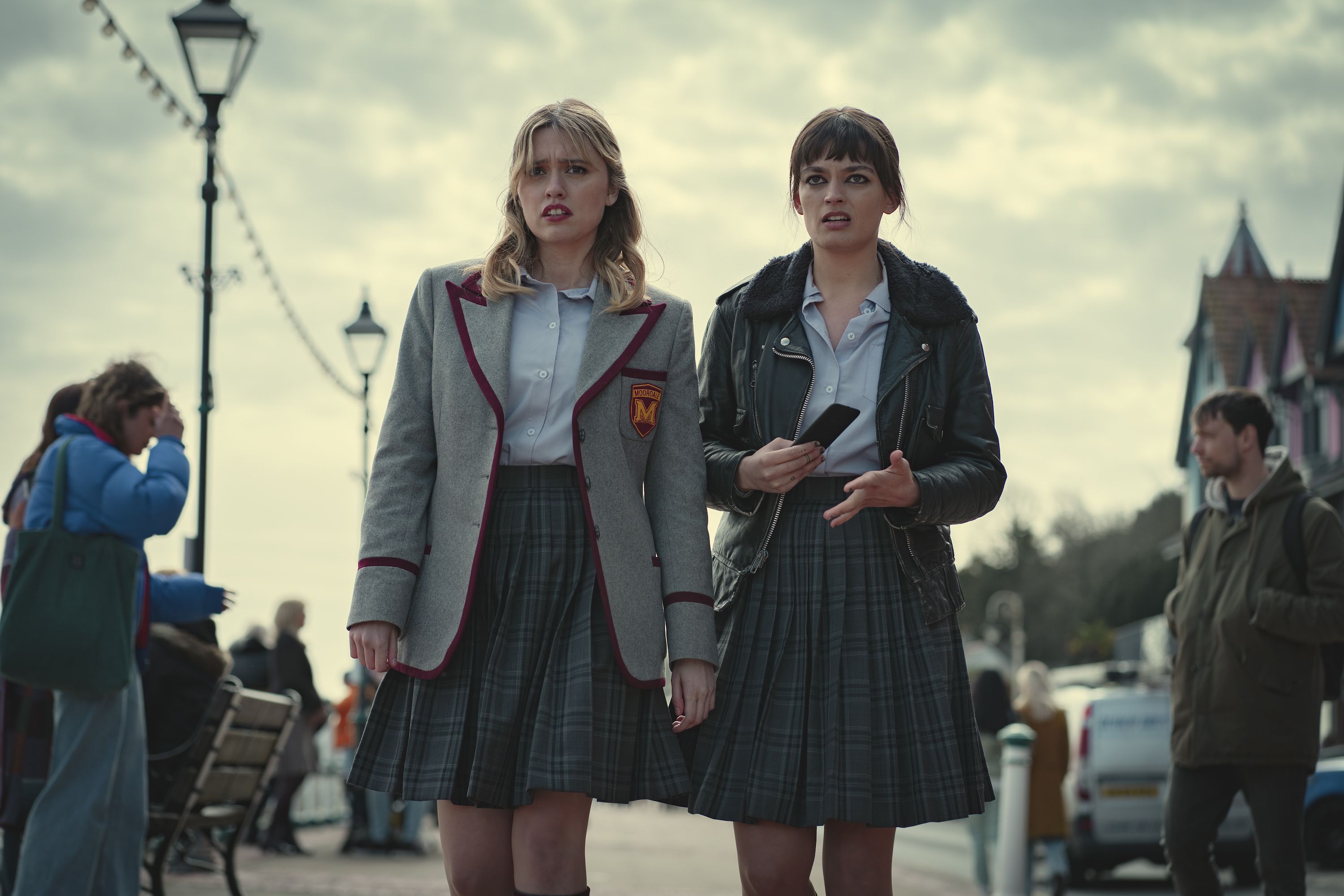
4. Casual sex shouldn't be stigmatised
As we've touched on, Jean admits she's had a lot of causal sex in the series - but she doesn’t look back on her experiences with shame or regret, just openness and an attitude which once again frames sex as a natural human experience that shouldn't be societally stigmatised.
"It can be very hard to accept our past sexual relationships - part of this due to learned shame and stigma," shares Cooper. "Know this - it's totally normal to have experiences to learn from and through. I love that Jean acknowledged her experiences were a part of her and, further, that she shouldn’t have to hide them."
5. Those with disabilities aren’t asexual and have sexual wants, needs, and expressions, too
This one's important. "Over time as a sex coach and sexologist, I've learnt that everyone has their own unique needs and wants when it comes to experiencing pleasure," explains Cooper.
But we need to be educated about this more in schools, she stresses. "Not only this, we need to be taught that disability or illness can happen to anyone at any age and can result in a big shift from traditional sexual pleasure and enjoyment."
Maeve and Isaac's relationship is central to demonstrating this, with one key scene showing Maeve asking Isaac to explain where on his body he feels the most pleasure. "It's one of the most realistic depictions of a disabled relationship I've seen in the media and reaffirms that yes, disabled individuals still experience pleasure," Cooper goes on.
6. Not everyone's sexual expectations are the same
On that topic, Sex Education does a great job of highlighting that everyone - and we mean everyone's - sexual expectations, wants, needs, fantasies, fetishes and desires are different. Bondage for beginners, pegging or tantric sex, anyone?
Take Adam and Eric’s relationship, for example. "I loved the confusion they had over deciding sex positions - many of us have been in a similar situation, regardless of what type of sex we're having," she shares.
"It felt natural. More shows need to show the natural confusion, clumsiness and awkwardness that comes with sex."
It's only normal, and seeing it depicted on your TV screen will further affirm that you are not alone - actually, you're in the majority, she reckons. "Another great lesson to come from this scene is the learning that sex isn't always PIV (penis in vagina) - far from it," she adds.
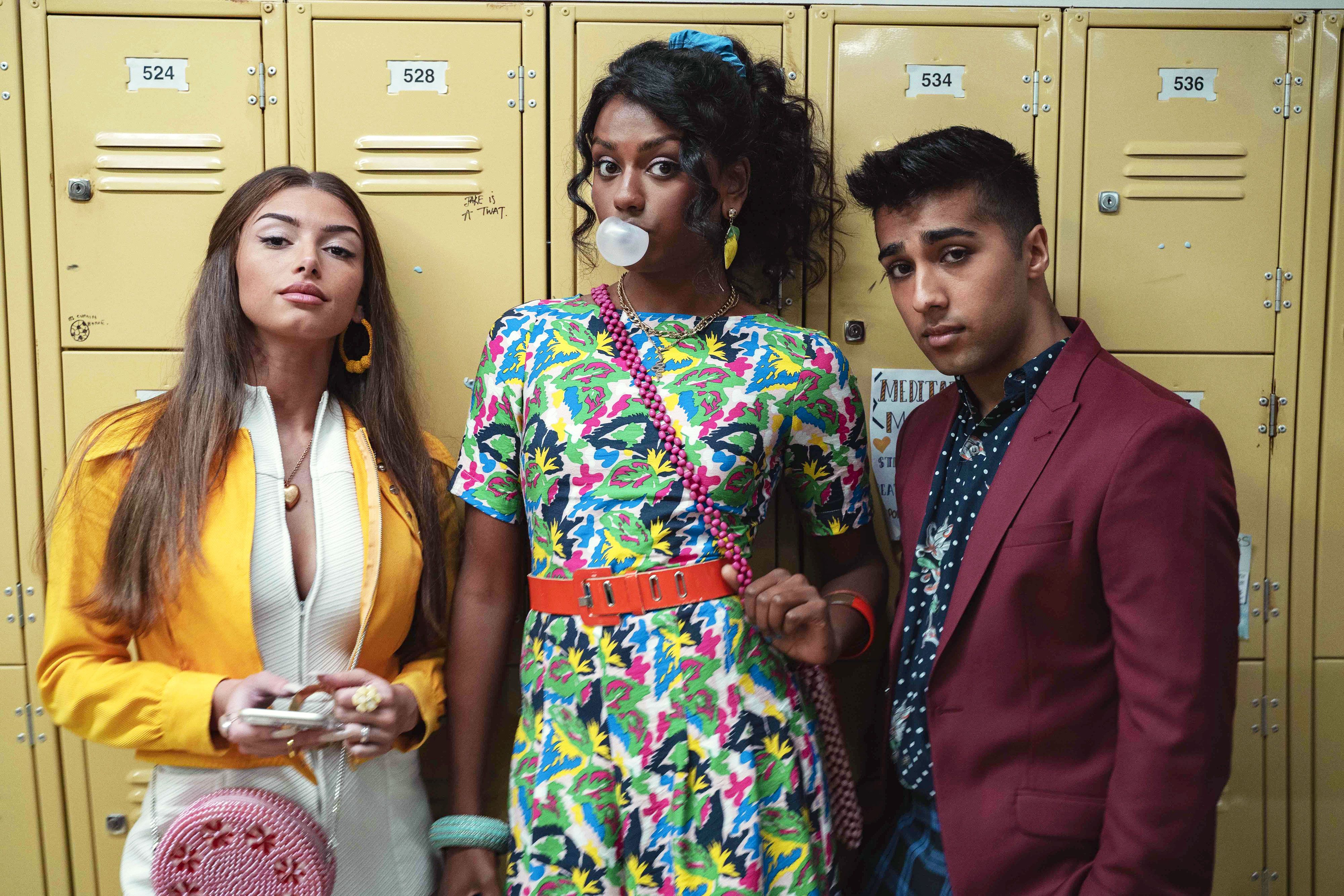
7. There’s strength in vulnerability
Hands up if you were upset (read: heartbroken) seeing Otis fail to reciprocate Ruby’s feelings mid-season? I certainly was, but doctor Katherine Hertlein, expert advisor at sex therapy app Blueheart, believes that this scene is super important in the learnings department.
"It presents a very powerful message: that it’s good to be vulnerable," she explains. "Ruby is often portrayed as a feisty, nonchalant character, but seeing her open up and be honest with her feelings shows courage. It doesn’t matter that those feelings weren’t reciprocated by Otis - showing vulnerability means you are truly capable of having intimate relationships," she explains.
8. There’s no such thing as perfect
Another overarching theme of the series? That life - and love - is complicated, and that's all just about rolling with the punches.
"Whether it’s romantic relationships, family or friends, Sex Education shows us that there’s no such thing as perfect," shares Hertlein. "We all have our unique characteristics and flaws, our bad moments and our good moments, we make good choices and bad choices."
"The series shows that although we can try to be truly virtuous, everyone makes mistakes, and it’s okay, because we’re human. Acknowledging those mistakes and working on ourselves is really what’s important."
Hear, hear.
9. People can - and do - change
We're looking at you, Adam and Mr. Groff. "We saw immense character development from both Adam and his Dad in season three, despite criticism of both characters in season one," shares Hertlein.
How so? Well, in this series, we saw Adam embrace his sexuality and we further watched as his Dad built up the courage to be completely candid and cut ties with a toxic family relationship. "After finally getting insight into Mr. Groff’s experience of humiliation, toxic masculinity and emotional neglect as a child, we’re finally able to understand his motivations and behaviour as an adult," explains Hertlein. "When he acknowledges this, he welcomes change, and we see he is a much better person for it."
Do know that while in reality, this won't happen overnight - or even as quickly as we see in the show - it’s still a powerful lesson. "People can and do change for the better," she confirms.
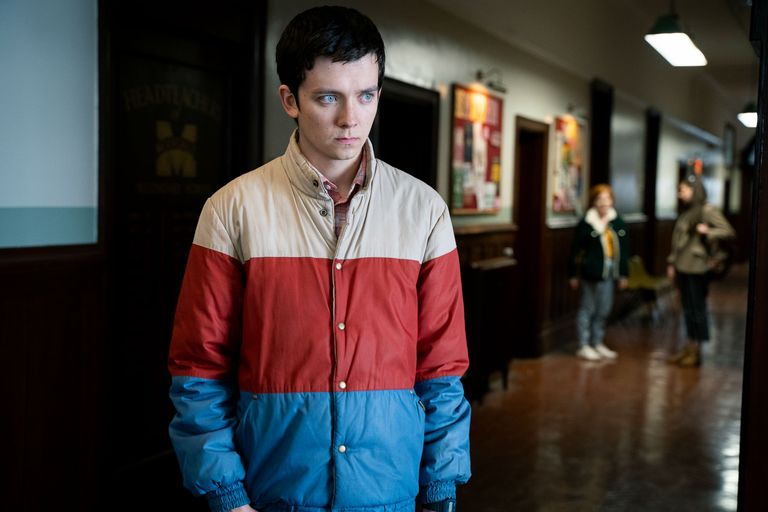
10. There is no such thing as normal
Finally, know this; there is no such thing as normal and whatever you're going through, someone else will have, too.
"Despite what we might see on the outside, this series shows that there really is no such thing as normal," concludes Hertlein. "Everyone is trying to navigate and deal with their own life struggles," she adds.
Sex Education has confirmed it'll be back for a fourth season - watch this space.

Ally is Marie Claire UK's Senior Health and Sustainability Editor, a well-regarded wellness expert, ten-time marathoner, and Boston Qualifying runner.
Utilising her impressive skillset and exceptional quality of writing, she pens investigative, review and first-person pieces that consistently demonstrate flair and originality.
As well as writing, Ally manages a team of freelancers, oversees all commissioning and strategy for her pillars, and spearheads the brand's annual Women in Sport covers, interviewing and shooting the likes of Mary Earps, Millie Bright, and Ilona Maher. Shortlisted for three BSMEs and winning one in 2022, Ally lives and breathes her verticals: her eye for a story and connections within the wellness sphere are unrivalled. Follow Ally on Instagram for more.
